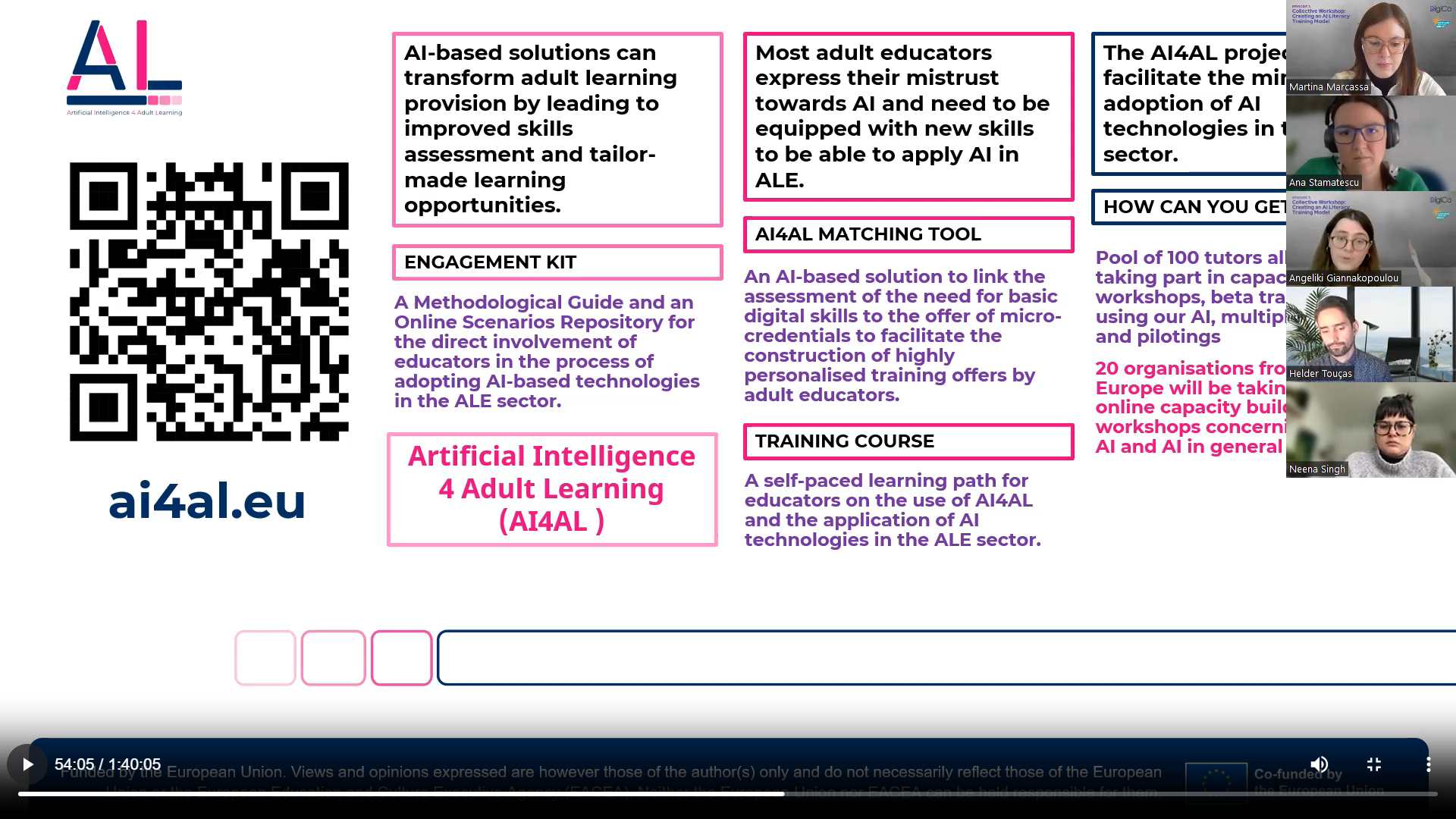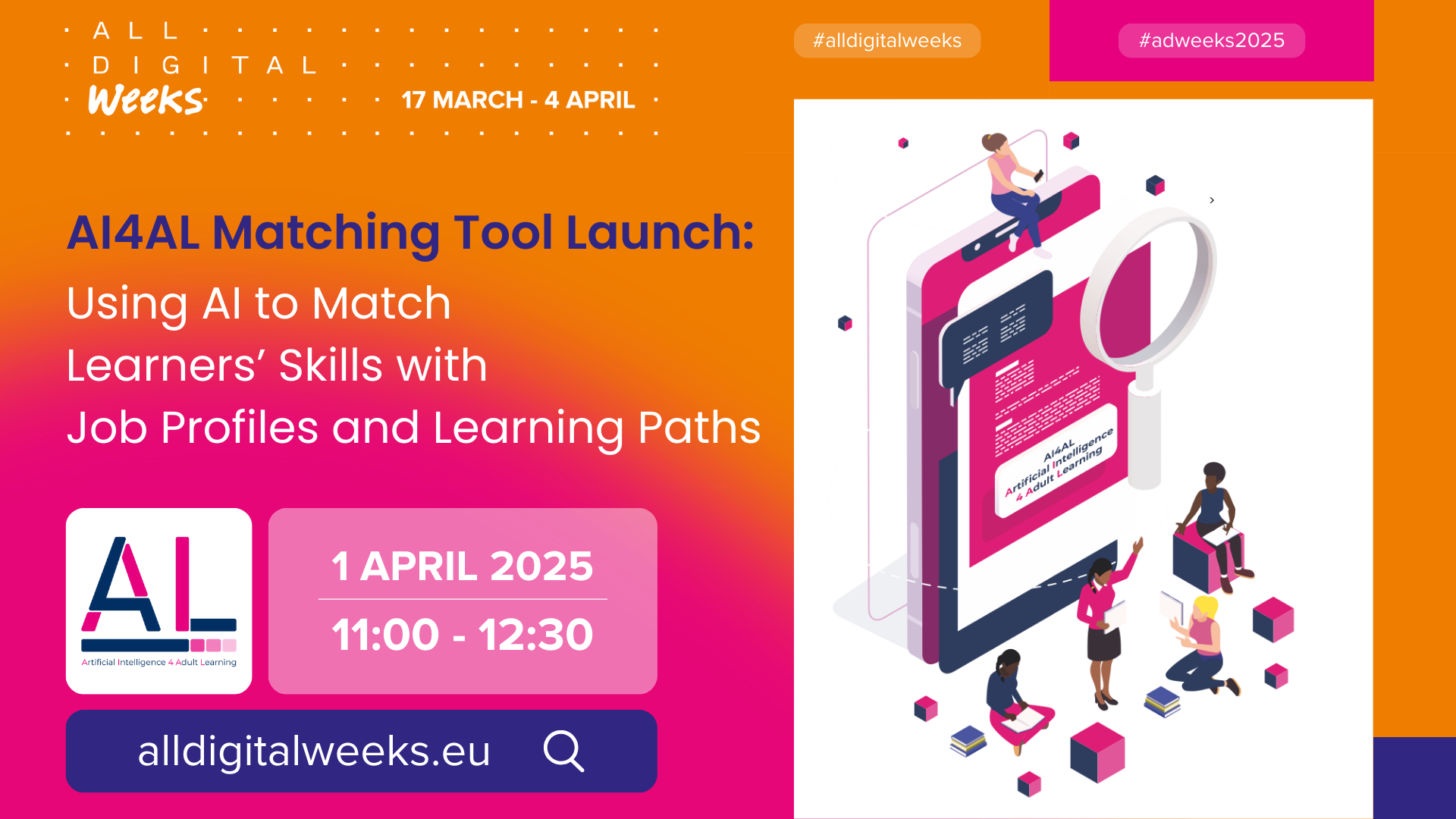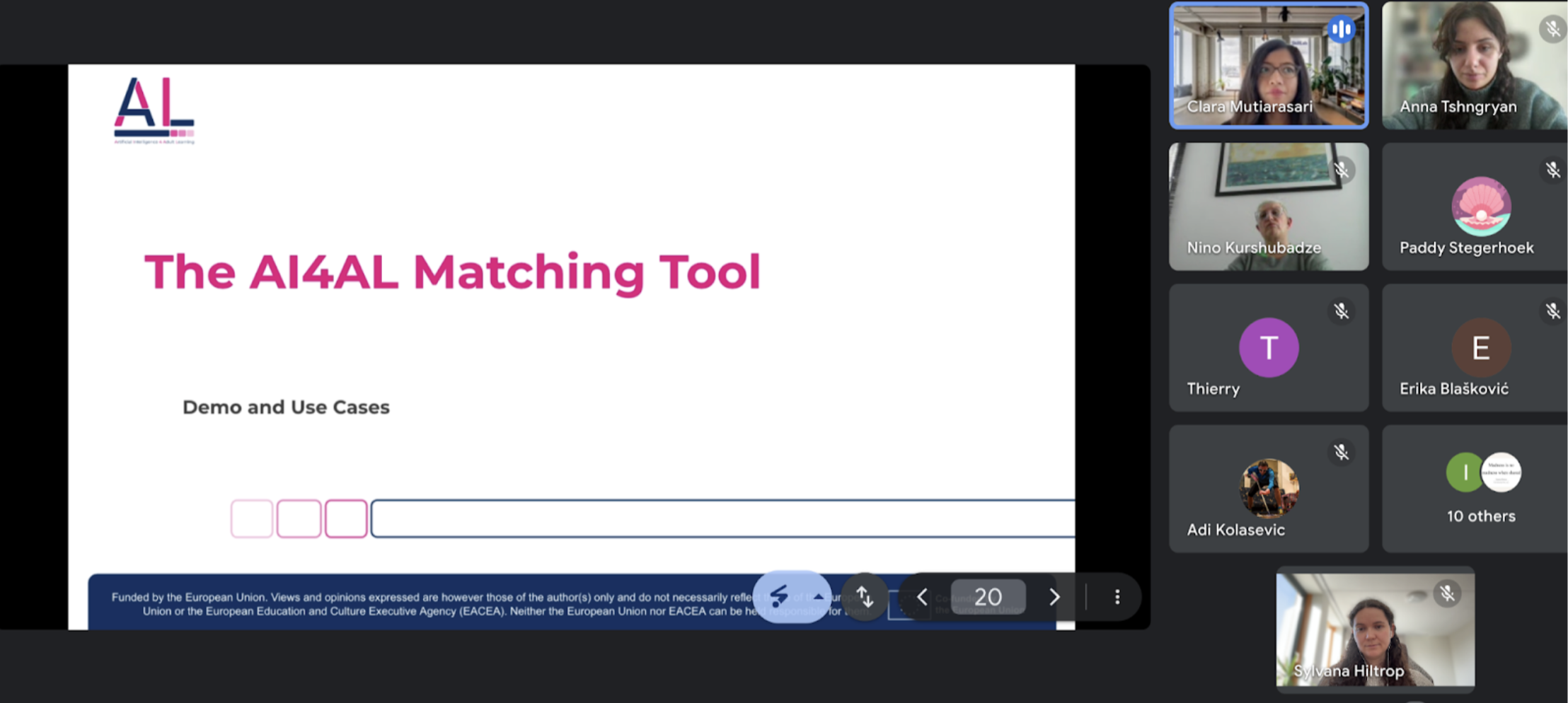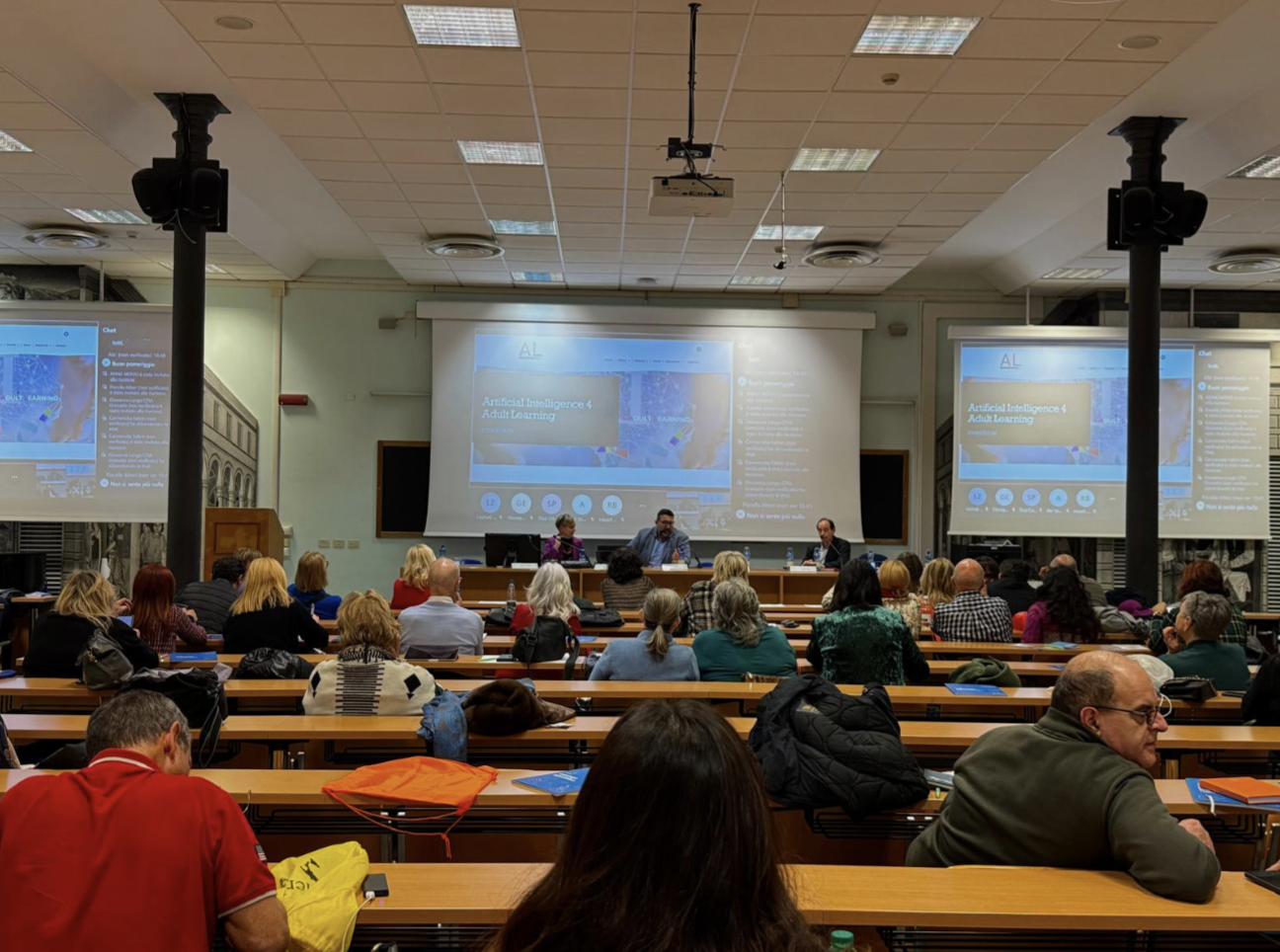In the context of the European Year of Skills, on October 26th DigiCo hosted the third episode of their Digital Inclusion series Back to Basics, which has the objective of bringing basic digital skills to the forefront of the European Agenda. On the day, AI4AL’s Angeliki Giannakopoulou was there moderating one of the discussions based on the tools and processes of AI4AL.
In the event we invited digital skills trainers working in formal, non-formal and informal education to participate in a Collective Workshop to define successful methodologies to teach Artificial Intelligence Literacy and embed it in digital literacy training curriculums. Throughout two hours, participants guided by expert AI mentors shared their insights and ideas on this subject. This peer learning approach provided us with the foundation to design an AI Literacy Module within a wider training.
Providing essential digital skills training is the initial and crucial step to integrating groups in vulnerable situations who are currently excluded from the digital world. However, in today’s fast-paced world where AI is gaining great relevance, possessing AI literacy is becoming essential to avoid being left behind in the digital era. By incorporating AI Literacy into basic digital skills training curriculums and teaching activities, trainers encourage students not only to learn critical thinking and the ability to recognize potential risks, such as biases or misinformation, but also how to leverage these technologies to improve their social and economic integration.
The Collective Workshop: Creating an AI Literacy Training Model consisted of a collaborative session where participants discussed the basic components that are needed to teach an inclusive and comprehensive module on AI literacy. Through two breakout rooms that ran simultaneously, participants dived into the two workshop topics:
- Choosing the right tools for training about/with AI
- Making AI familiar and fun to foster learners’ motivation
Guided by expert mentors in both rooms, participants discussed and shared their thoughts through a collaborative whiteboard. The first topic, Choosing the right tools for training about/with AI, was guided by Angeliki Giannokopolou, Angeliki Giannokopolou, project coordinator at the European Association for the Education of Adults in Brussels. Through her sessions, participants discussed how to choose tools that enable the exploration, discovery and interaction of AI technologies. At the core of this process are accessibility and inclusion, qualities that ensure that AI is used for the good of everyone and that it does not increase the current digital divide. The discussions in this room highlighted key insights on the integration of AI in education. Participants concluded that AI can effectively address literacy barriers, solve technical issues for both educators and learners and streamline student data analysis. They also pointed out that trainers must be vigilant about potential biases in AI tools, ensuring affordability, reliability, and monitoring for algorithmic bias. The democratization of AI and a human-centred approach, integrating AI with real-life interactions, were proposed as essential strategies to bridge learning gaps. For our project this meant the registration of more than 25 educators in the pool of our Beta Tutors and we could not be happier!
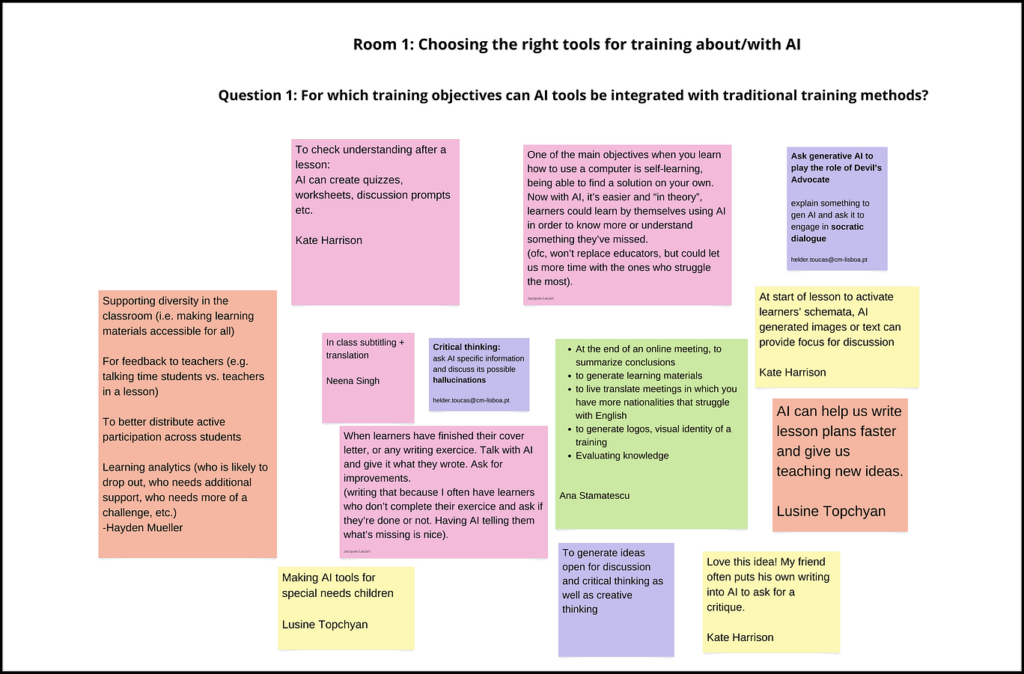
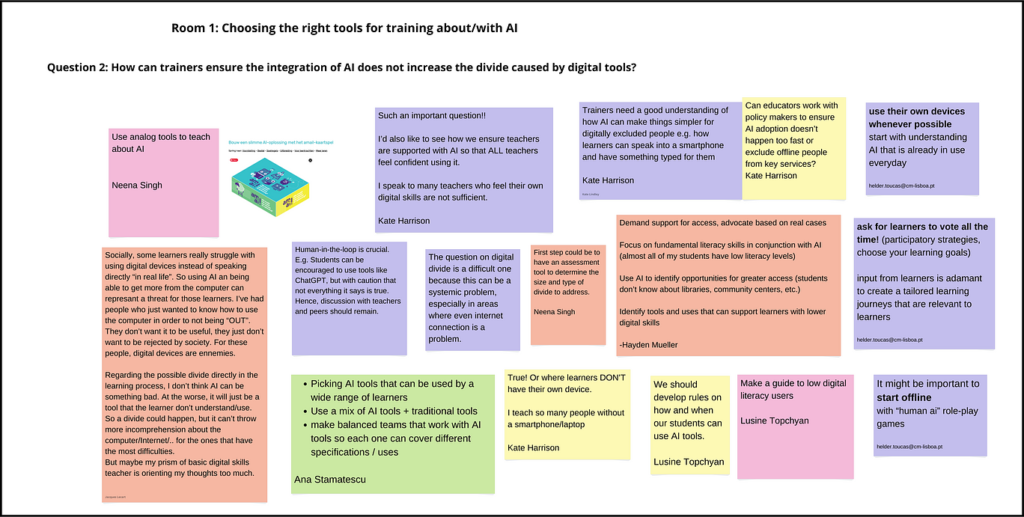
The second topic, Making AI familiar and fun to foster learners’ motivation, was mentored by Angela Karadog, trainer, project manager, and researcher in Pontydysgu, a Spanish research organisation. Participants in this room explored methodologies that enable learners to take ownership of AI, through easy language and familiar content. For this second topic, the focus shifted towards practical classroom applications of AI. The emphasis was on demystifying AI by starting with real-world, non-threatening use cases and empowering learners to experiment with AI themselves. Participants suggested breaking down AI into digestible parts and using of chatbots, role plays, and offline games as engaging teaching tools. Additionally, starting with the learners’ interests, such as arts, sports, or films, and connecting AI to these areas to motivate and engage them was recommended.
Based on all the valuable insights we received, DigiCo will create a practical handbook compiling all methodologies shared during this Collective Workshop on how to teach AI to individuals with varying levels of digital skills. This handbook will serve as a foundation to design a module on the basics of AI literacy within a wider training. Digico will also host the AI4AL matching tool, engagement kit and training course in their platform, so we are really looking forward to see how our work can further be communicated!


